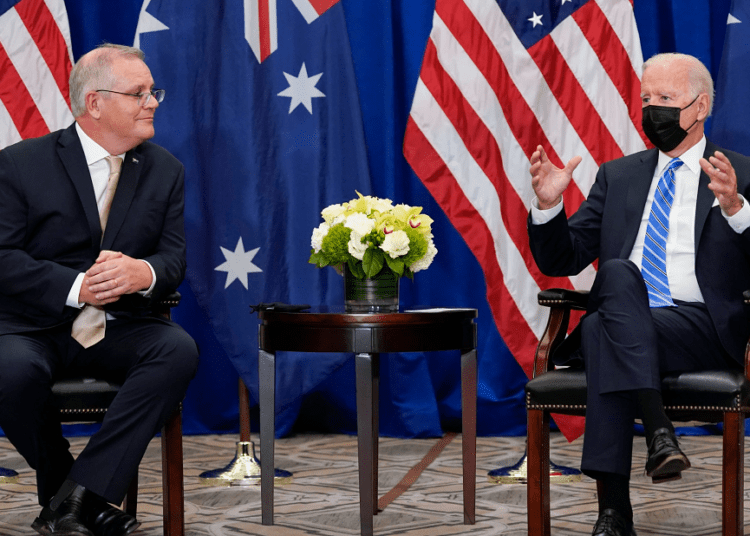WASHINGTON – President Joe Biden on Friday is set to host the first in-person gathering of leaders of an Indo-Pacific alliance known as “the Quad” as he wraps up a difficult week of diplomacy after facing no shortage of criticism from allies and adversaries, AP reported.
The White House meeting with leaders from India, Japan and Australia gives Biden a chance to put the spotlight on a chief foreign policy goal: greater attention to the Pacific in light of what the United States sees as China´s coercive economic practices and unsettling military maneuvering in the region.
The leaders are expected to announce a coronavirus vaccine initiative, plans to bolster semiconductor supply chains and a program to bring graduate and doctoral students in STEM fields to US universities.
Before the summit, the Japanese and Indian governments welcomed a recent announcement that the US, as part of a new alliance with Britain and Australia, would equip Australia with nuclear-powered submarines.
That will allow Australia to conduct longer patrols and give it an edge on the Chinese navy. But the announcement infuriated France, which accused the Biden administration of stabbing it in the back by squelching its own $66 billion deal to provide diesel-powered submarines.
Tensions between Biden and French President Emmanuel Macron eased after the two leaders spoke Wednesday and agreed to take steps to coordinate more closely in the Indo-Pacific.
Michael Green, who served as senior director for Asia at the National Security Council during the George W. Bush administration, said Japan and India welcome the United States-United Kingdom-Australian alliance “because it will really for the next 50 years reset the trajectories in naval power in the Pacific and from the perspective of those countries stabilize things as China massively builds up its naval forces.”
But Chinese Foreign Ministry spokesperson Zhao Lijian called it a reflection of “outdated Cold War zero-sum mentality and narrow-minded geopolitical perception” that would intensify a regional arms race.
Beijing has also sought to push the notion that creation of the alliance indicates the US will favor Australia in the Quad at the expense of Japan and India, said Bonny Lin, senior fellow for Asian security at the Center for Strategic and International Studies in Washington.
China also has tried to undercut the Quad as out of step with other nations in Southeast Asia and portrayed members of the Quad as “US pawns,” Lin said.
The White House meeting is playing out as China continues efforts to make a show of force in the region.






Discussion about this post